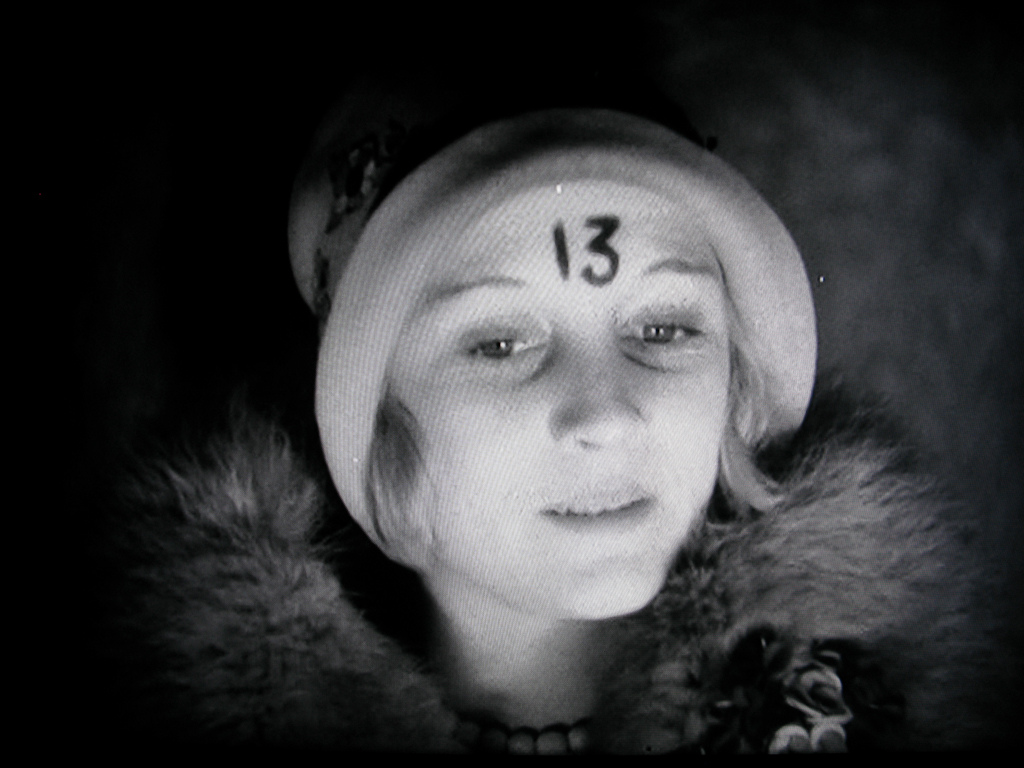 Guest post by Pierre-Loic Assayag
Guest post by Pierre-Loic Assayag
I’m being challenged to a battle of egos by a stranger on Twitter:
“@pierreloic your Klout Score is 33 (I’m a 51). Check out your @klout profile today.”
Of course, I could always ask Shonali to the rescue. She’s after all “a 63” and the Klout resident expert on all things bacon and Kim Kardashian. :-)
Instead, this tweet made me reflect on what could have become of the business I co-founded, Traackr (an influencer discovery platform).
I’m glad we didn’t let it.
Back in 2007, my co-founder, David, and I kicked around ideas fairly similar to what Klout does today. We even built and launched a consumer app helping power users (the term “influencer” didn’t exist to describe online authorities at the time) measure their success and gain insights on their contribution, their peer network, etc.
One of our early advisors said, “So in a nutshell, you’re giving people their social credit score, right?” I liked the ring of it – “social credit score,” yeah! But as soon as we started peeling the onion, the notion seemed to fall apart:
1. A credit score is absolute, everything we had learned through our user data showed that a social score was completely driven by context.
2. Unlike the traditional credit score, a social score didn’t seem to be actionable in any way.
3. Maybe worst of all, giving the illusion of accuracy of a generic score could mislead people and businesses to erroneous behavior (for example, hiring someone with a high score).
So instead of using the notion of Social Credit Score to define us, we used it to define what we’re NOT: we’re not in the business of oversimplifying to feed into a hype. We pushed the idea further to find real value for people and businesses.
The promise of Traackr then became very clear: we’ll find people who matter to you. And just like that, Traackr went from being yet another a social rating service to being a search engine for people.
Today, many other rating services, Klout among them, have embraced and propagated the idea of a “social credit score.” Compelling as it still sounds, we haven’t found any new evidence leading us to think anything has changed since we assessed and rejected the notion.
Don’t get me wrong, there’s an undeniable entertainement value to social scores. I’m a fierce competitor on FourSquare (though neither my friends on 4sq or I read anything into our scores), but there really is no real actionable data we can find outside of the social game built around raising your score above friends.
The economic model of these rating services is both simple and clever: be a social ad network that enrolls users through a social game and engages those offering the best CPI to advertisers.
If users and advertisers see value in this model, that’s wonderful.
But why pretend to be something else? The choice of words (“measuring online influence'” and metaphors (“social credit score'” inaccurately leads people to think that one’s score is a measure of one’s online worth. As a result, they could lead to ill-informed business decisions.
So if you’re looking for the entertainment value of a social score, you’re on! If you’re looking for data to drive meaning or your business, my suggestion is to look beyond the hype.
Image: yamchild via Flickr, CC 2.0
 Pierre-Loic Assayag, CEO of Traackr, pushes the boundaries of Traackr’s business and builds the team to support its expansion. He is passionate about social media and plays an instrumental role in the transition of the marketing and PR industries in the post mass media era. He is a veteran of the web industry, acting as Peugeot-Citroen’s first Director of New Media in the 90s, then joining the front-line of the Internet economy.
Pierre-Loic Assayag, CEO of Traackr, pushes the boundaries of Traackr’s business and builds the team to support its expansion. He is passionate about social media and plays an instrumental role in the transition of the marketing and PR industries in the post mass media era. He is a veteran of the web industry, acting as Peugeot-Citroen’s first Director of New Media in the 90s, then joining the front-line of the Internet economy.









[…] 5. Why a Social Credit Score is an Empty and Dangerous Notion […]
I’m planar for your article writings and contents fortunately.
<a href=”http://free-creditreports.net”>free credit score</a>
[…] been written ad nauseam (including on this blog, though they’re not the nauseating kind) on the plusses and minuses of Klout’s service, but I think I’ve finally nailed down what bothers me about the service (which I’m […]
@pierreloic :) @missusp
@pierreloic @shonali @traackr Thank you, I will check it out.
@pierreloic That is QUITE a post! @akosner great stuff.
@pierreloic Perhaps too many for some, LOL. Happy New Year! @jackielamp
@shonali @pierreloic Interesting! I think I might have to try it out. Could be extremely useful for client campaigns.
@jackielamp happy to hook you up :)
[…] What someone’s social score is, or how many followers they have on Twitter, means diddly-squat for you. Because it’s their network. Not yours. And no matter how much you try, or even they might try, they are not going to be able to transfer that community over to you. […]
Very interesting post. Read last week that someone’s Klout score is part of the computation Saleforce’s new automated monitoring and response tool uses to decide who a brand needs to respond to via social media. So people are still buying the concept.
@breedlejuice Whaddya think?
@corecorina dangerous if you’re overly invested, yes. empty, always :) /cc @Historian @traackr
@pierreloic relative values can have meaning… they just need to be kept in context, imho :) cc: @Historian @traackr
@MNathanson @affiniscape @JeniseFryatt Thanks for the RTs!
RT @NEMultimedia why a social credit score is an empty and dangerous notion http://t.co/UEacfN8f via @shonali
I appreciate the way you “peeled the onion” first, Pierre. Klout is getting it peeled for them. Amazingly, I also called these kind of concepts a gamified version of social media in my own post today, and those were my thoughts when I first realized what Klout’s purpose was. They’re putting the cart before the horse by first attempting to create Klout and then attempting to figure out its applications; the current perks aren’t really an application, they’re just a “prize for most whatever.” And thanks for the introduction to Traackr!
@ShakirahDawud Thanks Shakirah. Like I said, I only take issue with the packaging of the message. If you look at Klout for what it is: a step up from web advertising, I think it does the trick quite well.
@pierreloic The packaging is one of my biggest problems with it as well. But everyone knows what I think of Klout, no need to go there again… @ShakirahDawud
The term “social credit score” drives me bonkers. So very glad you didn’t go that route.
A credit score is a) private; b) used for a fairly narrow purpose, and c) quantifies the probability that someone will repay a substantial debt–thus, it is being used within the context of a heavily regulated industry (banking products).*
The automated social scoring tools out there are none of these things, and IMHO are indeed a danger. People are already using these scores for uses outside of the original intent. The use of these tools by potential employers has long been the most bothersome to me.
You guys (TRAACKR) are doing it right. I know the price tag is a problem for some, but you get what you pay for. Influence is nothing without context, and the free tools haven’t been able to crack that nut.
Good post.
*Yes, it is sometimes used for employment purposes, but only with the individual’s consent–consent being another thing sorely lacking from Klout and the like.
@jenzings Thanks Jen! Yes, just like for most things, you always get what you pay for :)
I have to confess I had to resist starting a rant on the way “credit score” itself is computed but I’ll save it for another post.
@pierreloic@jenzingsI’d like to read that other post. I have no idea how they compute those things…
@ShakirahDawud@pierreloic If you look at the Media Bulleseye archives, @jenzings came up with a doozy of a post a while back that “computed” a score. I totally fell for it… and then I realized it was an April Fool’s post.
@jenzings
You say these tools have been used outside the original intent, but that intent was never really clear to me, Jen. I think they’re kind of making it up as they go along, and as more and more companies decide to give them a spin.
Great post Pierre! I think it’s unfortunate when I come across someone who is caught up in these social scores beyond the obvious entertainment value they can offer. It reminds me of how our education system grades or how tests like the GRE are used, sure they tell us something but I have found many times myself that just because someone has an impressive GPA, it doesn’t mean they have all it takes to succeed in the working world.
@rachaelseda never trust anyone with a high Klout score.
@HowieSPM Haha I literally just laughed out loud Howie!
@HowieSPM Zingggg!!!!! @rachaelseda
@rachaelseda Thanks Rachael. The analogy you’re making is very interesting. You can even push it further on how it can affect behaviors: students and educators focusing on improving scores results (gaming the system) rather than teaching/learning. Very slippery slope…
@rachaelsedaYou’re right about the application of many of some of the narrower standards we use to measure merit. Thing is, those are taken seriously–very seriously! Try telling a high school senior her SAT score won’t matter. It seriously doesn’t have any bearing on her future success, but you won’t convince him or his parents of that.
@ShakirahDawud Sure it matters but to the extent of what school you want to go to and what you want to do. I never wanted to go to Harvard so while I knew I needed to get a decent SAT to get into the school I wanted to go to, I also knew that other factors mattered, such as my GPA, extracurricular activities etc. I think it can be looked at different ways, Klout is interesting but it definitely isn’t the be all end all because inevitably a “test” or “score” can’t show inevitably that you are an influencer etc. there are other factors as well. Just yesterday I saw Klout said I was influential in the NFL…haha…I wasn’t sure if my boyfriend would laugh or be proud about that.
Love the post Pierre. I am a sales guy with a finance degree now in Advertising. The goal of business is to make money. Some businesses need content to be viewed on the web around advertising. That is a very small % of the businesses out there. Most need you to physically do something like buy something or go to a restaurant or a movie and pay cold hard cash.
This is where the whole influencer idea falls a part. There is no connection or ever will be one in my view where a company like Klout can connect my online and off line behavior.
Even worse. And I have blogged about this. If you spend a day recording all the 1 and 2 way communication you have the percent that takes place visibly on line via social networks rounded down is zero. With the average person not on Twitter (Only 15-20mil in the US use it regularly and 80% of accounts tweet less than once per day) and the average Facebook user updates their status once every 4.5 days and comments once every 3 days, what is being measured? Zero?
There ate 173 SMS Text Messages sent for every Facebook status update. High School kids send 3000 per month vs the what 30-40 Facebook status updates if that? Then add email, in person, on phone etc to me the 99.9% of or daily communication that can not be measured can kill a brand. And we all know even when angry we often say nothing or are at least polite via Social Media. I might say ‘Your brand really pisses me off on the Twitter’ then tell every person I meet for 4 weeks how much you suck and you might never know why.
So yes all dangerous silliness to me!
@HowieSPM Thanks for the thorough comment Howie. You’re saying 2 important things here:
1- someone’s influence can’t be measured by their Twitter or Facebook data because it’s missing most of our activity (especially offline)
2- When quantified generically, scores can be gamed / trumped by sheer volume
The interesting thing is that as soon as you stop trying to quantify very generically something that really isn’t generic to begin with, these 2 issues really vanish for the most part.
@pierreloic You can always depend on @HowieSPM for “thorough” comments. I sense a euphemism there, Pierre!
@HowieSPM
I appreciate how you add the danger into the equation here, too, Howie. It grows as Klout’s credibility with its investors grows, and as people grasp onto anything they can to boost their chances of getting something like a job or entry into a high-flying club or anything like that. And yet, only a tiny part of us can be found online, and very little of that reflects reality.
@ShakirahDawud@Shonali@pierreloic speaking of ‘reality’ if Klout was following Shonali and I on the Twitter when we first met and quite often after they would think that Shonali is an expert in Measuring Public Radio because of my running joke that #MeasurePR is about Public Radio and not PR.
When there was an early GOP debate I was in Vermont. My girlfriend does not have TV, not that I would watch it anyway. But Ben Kunz (@benkunz) and Bill Green (@mtlb) had a running commentary of humor on it and I kept laughing and retweeting. Next think I knew Klout had me as an authority on Rick Perry.
I don’t see a way for the influence tracking systems to filter this stuff for millions and millions of accounts properly ever.
@HowieSPM@ShakirahDawud@Shonali@pierreloic Excellent observation, Howie! You’ve really nailed what’s at the crux of our discipline.
We’ve had to deal with similar issues ourselves: for example, how can we tell when someone means “Human Resources” or “House Republicans” when they use the acronym “HR”?
The answer is that defining the context for someone’s influence can’t be summarized to a single keyword. Influence is topical. Keywords are a proxy to defining the topic.
Klout has gone the easy route to remedy this discrepancy with +K to let its users define what topics are but opening the door to a very easy way to rig the system (see Shonali’s post on how she became an influencer on everything bacon).
We’ve taken the harder route to help our users create topics with keywords and apply computation to the requests.